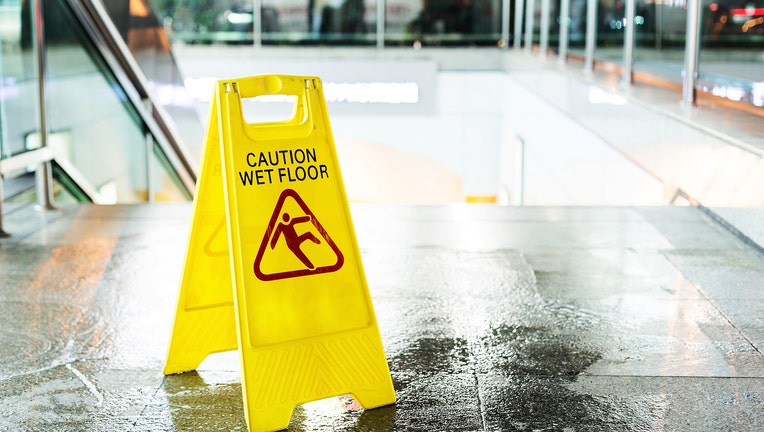What Holiday Shoppers Should Know About Slip and Fall Accidents
This content is from our sponsor. The FOX editorial team was not involved with the creation of this content.


‘Tis the season for festive meals with family and friends, holiday decorations, gift exchanges and…slip and fall accidents. Unfortunately, the hectic holiday season is also a time when many shoppers are injured after tripping and falling in department stores, malls and parking lots. While embarrassment is the most common outcome, some people suffer more dire consequences that include head trauma and broken bones.
Here are some of the most common hazards for holiday shoppers:
- Food courts where spilled drinks or food cause slippery floors
- Mall entryways on wet or snowy days
- Wet or icy parking lots and sidewalks
- Escalators
- Indoor trees and other décor that may pose a tripping hazard
If you fall on someone else’s property and are seriously injured, it may be possible to sue the responsible party for losses such as medical bills not covered by insurance and lost wages if you are unable to work during your recovery. Victims may also receive compensation for intangible losses such as pain and suffering. However, these lawsuits are more complex than most people realize, and plaintiffs must satisfy several legal requirements in order to prevail.
Proving fault
Determining who is responsible when a shopper is injured in a fall can be complicated, depending on how and where an accident occurred. For example, suppose someone falls on an escalator and injures their back. If the fall was caused by a malfunctioning escalator, the shopping mall could be liable for failing to keep the equipment in good working order. Or, if the escalator was defective, the manufacturer might be responsible. Likewise, an outside company hired to maintain the escalator may be at fault.
In some cases, the victim may be able to file a lawsuit against multiple parties. This is why it is important to consult a knowledgeable slip and fall lawyer as soon as possible after an accident to ensure the best financial outcome.
"Open and Obvious"
The "open and obvious" doctrine presents one of the greatest challenges to an individual who is injured in a fall. In fact, it is the most common defense used by property owners in slip and fall lawsuits. While this law does not give owners a free pass, it focuses on the victim’s ability to recognize the potential danger rather than the owner’s duty to remove the hazard or warn visitors about its inherent risks.
The legal standard for applying this law, as upheld by the Michigan Court of Appeals in a 2008 case involving black ice, is "whether an average person of ordinary intelligence would have been able to discover the danger and risk upon casual inspection."
Unfortunately for victims, most hazardous conditions meet these criteria.
However, the law provides exceptions for conditions that are "unreasonably dangerous," such as a 30-foot deep pit in the middle of a parking lot, and those that are "effectively unavoidable," such as an icy sidewalk that visitors must use to exit a building.
Proving negligence
While Michigan law requires property owners to use "reasonable care" when maintaining their premises, plaintiffs must also prove negligence on the part of the owner. This means demonstrating the property owner knew – or should have known – about the hazard and failed to remedy the situation.
Comparative fault
Under Michigan’s modified comparative negligence statute, the victim’s role in a slip and fall accident also affects the amount of a settlement. Did the person fall down the stairs because they were focused on a cell phone? Were they wearing high heels to walk through an icy parking lot? If so, the amount of compensation may be reduced accordingly.
Here’s an example: a plaintiff won $100,000 after slipping and falling on an icy sidewalk and breaking a leg. However, the person was assigned 30% of the blame for texting on a cell phone at the time of the accident. Therefore, instead of receiving the entire amount of the settlement, the victim received 70% of the total (after attorney fees).
What to do after a fall
Here are the steps to take if you are injured in a fall on someone else’s property:
- Seek medical attention immediately by calling an ambulance or going to the nearest emergency room
- Take photos of the scene, including any hazards that caused your fall
- Photograph your injuries if possible
- Get contact information from witnesses
- Call an attorney with a proven track record for winning slip and fall cases
- Do not sign insurance papers or talk to an adjuster before consulting with a slip and fall accident lawyer
- Follow up with your physician as soon as possible after the accident, regardless of whether you received emergency treatment
Put an experienced legal team on your side
The Sam Bernstein Law Firm takes every slip and fall accident seriously. We treat our clients like family and we know what it takes to win the compensation you deserve.
Slip and fall law is complicated, but finding the right accident attorney is simple.
Start your case today by visiting www.callsam.com or calling 1-800-CALL-SAM for a free, no-obligation remote consultation from the safety of your home.
Sources:
This content is from our sponsor. The FOX editorial team was not involved with the creation of this content.

